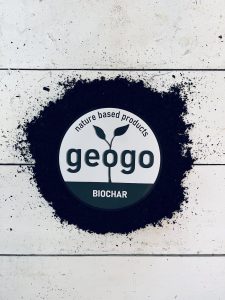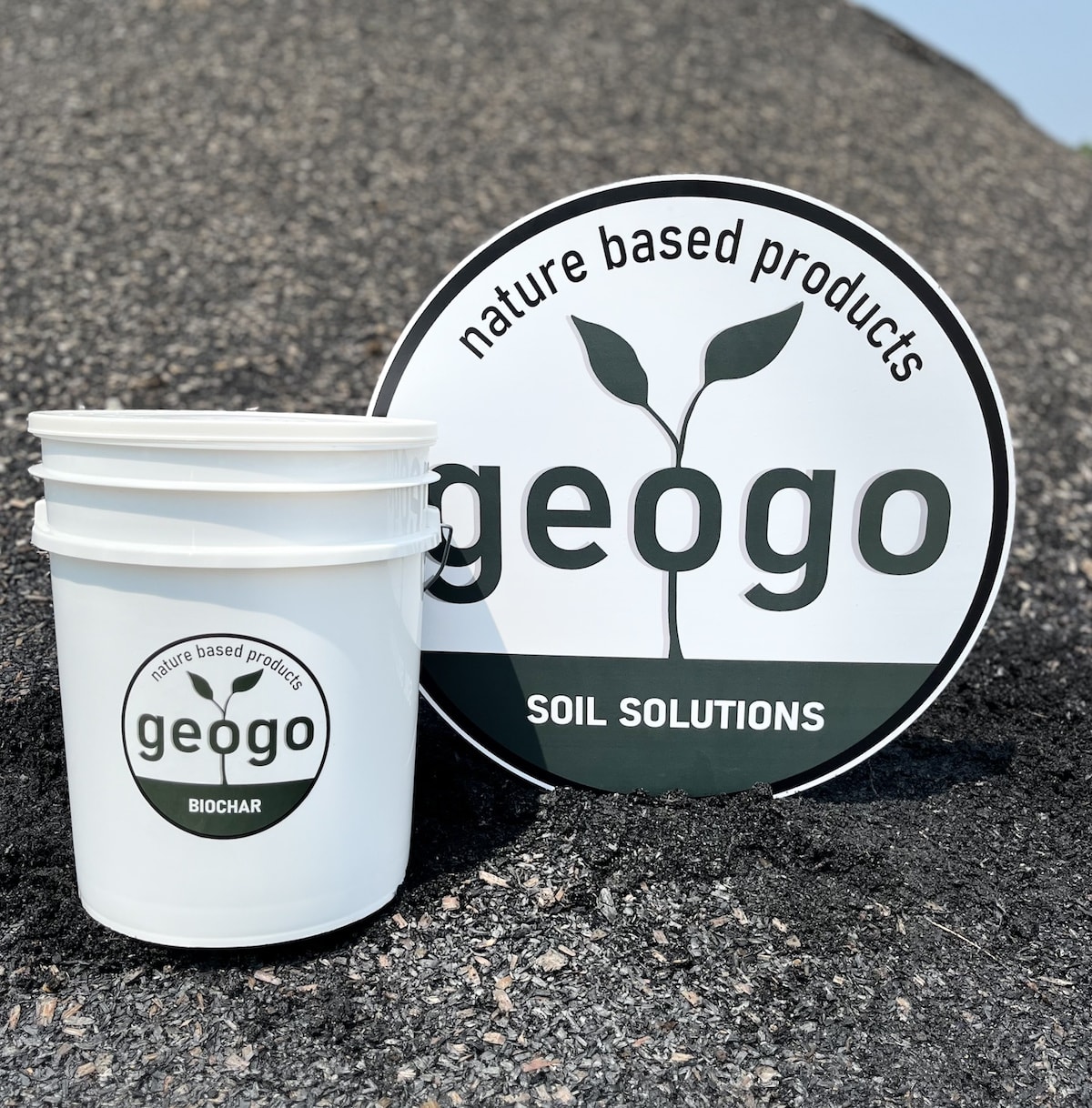geogo Soil Solutions Biochar

Creates an apartment like housing habitat for microorganisms to thrive by increasing your soil fertility. Biochar improves soil health by allowing the soil to retain moisture, and improve drainage within the soil. Biochar helps plants with drought resistance. It is an essential ingredient in our Xtreme Bokashi Compost, Xtreme Garden MiX, and Xtreme Potting MiX.
Biochar offers numerous benefits for improving soil health, enhancing plant growth, and mitigating climate change. Its proper application can lead to sustainable agricultural practices, making it a valuable tool for farmers, gardeners, and environmentalist.
Available in 2, 3.5 and 5 gallon buckets through our online store and 1 yard Super Sacks or bulk through delivery.
Biochar Uses
Biochar is best used as an amendment to your soil to improve your soil’s properties for water retention and absorption of water and nutrients. It also gives structure to your soil and enhances microbial activity. The high cation exchange capacity improves the effects of fertilizers when applied.
Benefits of using geogo Soil Solutions Biochar
Soil Health Improvement:
Biochar is a highly porous material that enhances soil structure by increasing aeration and water retention. This is particularly beneficial for sandy soils, which typically have poor water-holding capacity, and clay soils, which suffer from poor drainage.
Nutrient Retention:
Biochar’s porous nature helps retain nutrients within the soil, preventing them from leaching away. This means that your plants have better access to essential nutrients, promoting healthier growth and reducing the need for chemical fertilizers.
Reduction of Soil Contaminants:
Biochar can adsorb a variety of contaminants, including heavy metals and pesticides, thus reducing their bioavailability in the soil. This is particularly useful for remediating polluted soils and improving the overall safety and health of agricultural lands.
Enhanced Microbial Activity:
The unique structure of Biochar provides a habitat for beneficial soil microorganisms. Think apartment houses! These microbes play crucial roles in nutrient cycling, organic matter decomposition, and disease suppression, thereby enhancing soil fertility and plant health.
Reduction of Greenhouse Gas Emissions:
In addition to sequestering carbon, Biochar can reduce emissions of other greenhouse gases such as methane (CH4) and nitrous oxide (N2O) from soil. This further contributes to its role in combating climate change.

Buy It Here
How to Use Biochar
Incorporation into Soil:
Before adding planting, the Biochar needs to be inoculated (pre-charge) with your compost or topsoil. The inoculating process ensures that biochar does not initially absorb nutrients from your garden soil, which could temporarily deprive your plants of essential nutrients. Add 5% to 10% by volume of Biochar to your compost or topsoil prior to planting. Then incorporate this mix into the soil at the planting site. Wait two weeks before planting. If adding directly to your soil in the planting area, wait two weeks before planting.
Application Rates:
The amount of Biochar to be applied depends on soil type, crop requirements, and specific goals. The application rates range from 5 to 20 tons per hectare. For home gardener, the mix rate of Biochar to soil is 5% to 10% by volume.
Mixing with Soil:
Biochar should be thoroughly mixed into the topsoil to a depth of about 6” to 8” (15 to 20 cm). This ensures an even distribution and maximizes its beneficial effects on soil structure and fertility.
Maintenance:
Biochar applications can have long-lasting benefits, but it’s important to monitor soil conditions and plant health regularly. Adjustments in Biochar applications may be needed based on crop performance and soil test results.
Storage:
Store Biochar with the lid on. Use within 3 months.
When handling compost or soil like products, it is recommended to wear gloves.

